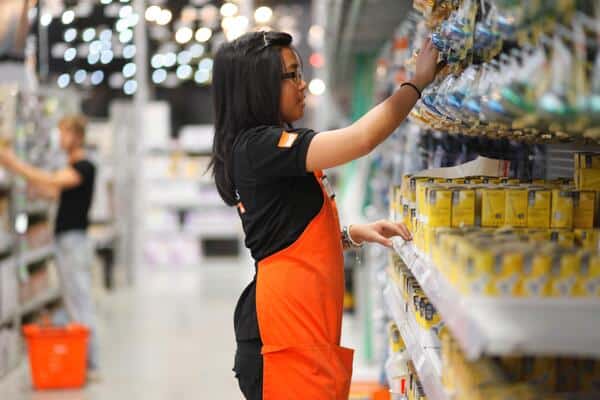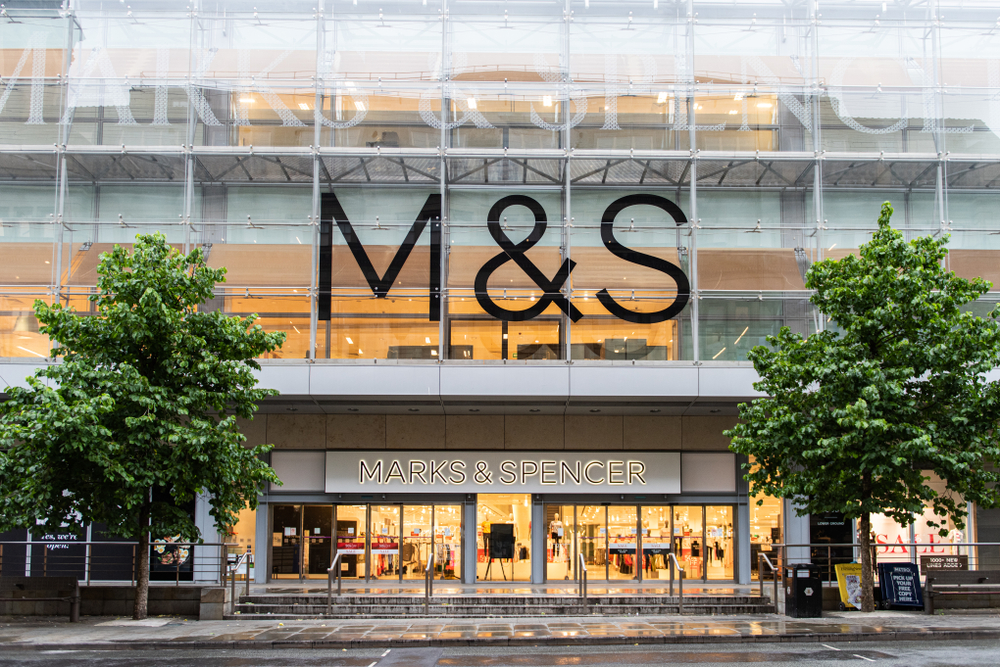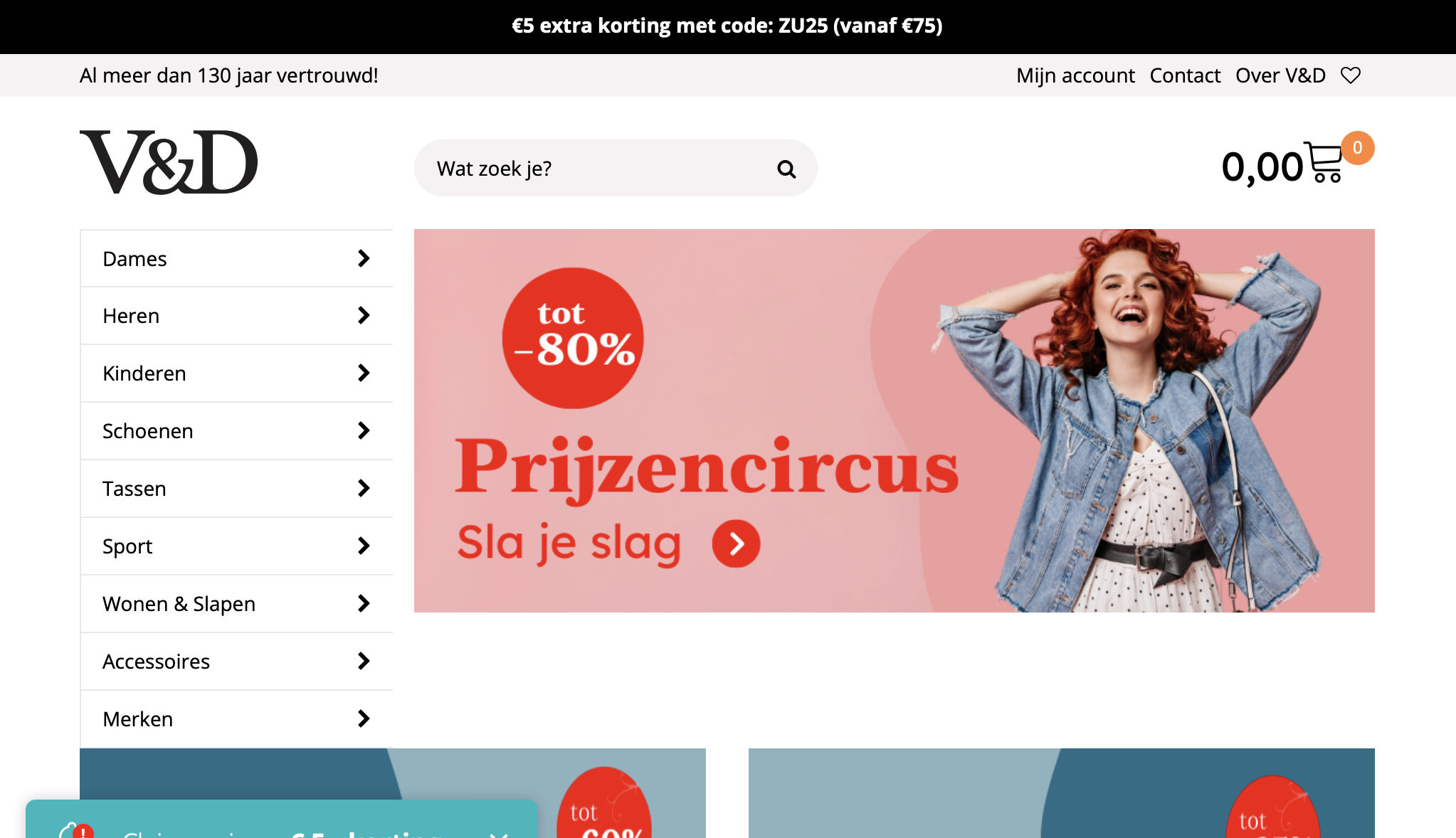Online sales at Kingfisher Group – whose retail brands include B&Q and Screwfix – more than doubled in its latest financial year. Its DIY and trade retail brands enabled shoppers – who focused on improving their homes at a time when they were spending more time there – to buy supplies online. Stores remain critical to the online strategy, with most online sales picked there during the year. Today the group reported pre-tax profits up by more than 600% in its latest financial year, as online sales more than doubled – and total sales grew by 7%.
Group ecommerce sales grew by 158% during the year to account for 18% of Kingfisher group sales. That’s up from 8% a year earlier. Click and collect sales grew by 226% to account for 78% of online sales – up from 62% last time. And 92% of online orders, whether for click and collect or home delivery, were picked in store. Sales via mobile devices grew by more than 200% and accounted for about 56% of online sales – up from 40% a year earlier.
Kingfisher Group has trialled click and collect lockers in its French and Polish businesses, and drive-through and car park collection in France, while 20% of B&Q shops are now digital hubs. Same day home delivery is being piloted at B&Q in order to win a competitive advantage over pureplay businesses.
Kingfisher Group today reported sales across all channels of £12.3bn in the year to January 31 2021. That’s 7.2% ahead of the £11.5bn reported a year earlier. Like-for-like sales – which strip out the effect of store openings and closures – fell across all its markets except Romania (+2.3%) in the first quarter of the year, when the pandemic hit and most stores closed at first. But they grew strongly in most markets through the rest of the year. Sales in the UK and Ireland grew by 12.3% to £5.7bn. Sales in Kingfisher’s French business grew by 3.2% to £4.3bn, including £2.3bn at Castorama (+3.3%) and £2bn at Brico Dépôt (+3.2%).
Pre-tax profits of £756m were 634% up on the £103m reported in the previous year. Within that, retail profit in the UK and Ireland reached £681m, 36.3% up on the previous year, while Kingfisher also saw fast growth in its Iberian market (+66.3%) to £3m. In France retail profit grew by 7.9% to £181m.
During the year the retailer sold its Russian business with a loss of £49m, and bought the services marketplace NeedHelp, while testing new compact store and partnership models. It is exploring ecommerce marketplace models. It is rolling out a cloud-based digital technology stack to all its businesses in an operation now complete at B&Q in the UK and at Castorama in France, and is taking a mobile-first and services-focused approach to the customer experience. Mobile orders were up by 200%
Kingfisher Group chief executive Thierry Garnier says: “Kingfisher is coming out of the Covid crisis as a stronger business, with an improved competitive position in all key markets, strong new customer growth and a step change in digital adoption.”
He said that the businesses had continued to focus on and fix key parts of the business, including a reorganisation of its commercial operating model, with new trading approaches for local markets. Its performance and competitive position in France have “significantly improved” as a result.
Garner adds: “We are making significant progress with our longer-term strategic goals. In the area of ecommerce, by rapidly implementing changes in our stores, IT systems and supply chain, we have met the demand of our customers for speed and convenience. This approach, supported by our model of placing stores at the centre, has driven rapid click & collect growth along with faster home delivery services. Group ecommerce sales grew by 158%, reaching 18% of our sales. We have also accelerated the pace of development in the areas of mobile, services, store concepts and partnerships, and have many ongoing and exciting innovations in progress.”
And he says: “Current trading remains positive and while visibility is limited for the year as a whole, we are confident of continued outperformance of our wider markets. The Covid crisis has established new longer-term trends that are clearly supportive for our industry – including more working from home, the renewed importance of the home as a ‘hub’, and the development of a new generation of DIY’ers – and we expect these to endure. With our strategic progress, we are well positioned to capitalise on these new and positive market trends.”
B&Q: trialling same-day deliveries
B&Q turned over £3.7bn in 2020, 12.9% up on the previous year. Sales reported on a like-for-like basis – which strips out the effect of store openings and closures – were up by 13%, and building and joinery were the strongest performing categories.
Online sales grew by 117% to account for 10% of sales – up from 5% a year earlier. As online sales take more of its sales, it has looked again at its store formats and plans to ‘right size’ some of tis big box stores. During the last year it reduced the size of its B&Q store in Canterbury by about 30%, which the excess space taken over by Aldi. It expects to save 33% in the costs – including rent – of running the store as a result.
It now sees smaller stores as the key to mobile-first expansion. During the year it opened five new shops, of which three are compact stores. It has trialled new store formats over the year including two small B&Qs in Merton and Twickenham, two branches within Asda supermarkets in Sheffield and Dagenham. During the current year it plans to test more new store formats. It also plans to right-size some of tis slarger One in five (20%) B&Q shops are now digital hubs. The retailer is piloting same-day home delivery as a way to gain competitive advantage over pureplay businesses.
B&Q has now completed the roll out of the Kingfisher Group digital technology stack, which uses cloud-based components to support “more efficient and agile digital capabilities including scalable mobile apps, lower latency, seamless payments, smart search, and more efficient web content management”. This scalable platform is currently supporting over 500,000 click and collect orders a week at B&Q, and over the summer supported 1.5m digital orders in a single week.
It is now trialling mobile ‘scan and go’ technology for customers to use to scan products as they go round the store and then check them out. Self-checkout is also being trialled in-store, while a Speedy Hire partnership is trialling a tool hire service at 14 B&Q branches.
During the year, B&Q set up a virtual sales models for its kitchens and bathrooms and says several thousand virtual showroom planning sessions have taken place since the start of January 2021. It will soon add to those capabilities a 3D kitchen and bathroom design tool, currently being trialled.
Screwfix: 78% of sales made online
Screwfix turned over £2bn for the first time in 2020, after sales grew by 11.4% – driven by a 165% rise in online sales, to account for 78% of sales. Between late March and late July, Screwfix only sold online. All of its shops were closed to in-store browsers and shoppers, with most instead acting as fulfilment centres for click and collect orders.
During the year it opened 36 shops, including eight in the Republic of Ireland, taking it to a total of 722, including 12 in Ireland. It now plans to open 900 stores in the long-term. A new “ultra compact” Screwfix Collect store has been trialled in central London with “encouraging” results.
B&Q and Screwfix are both Leading retailers in RXUK Top500 research.









